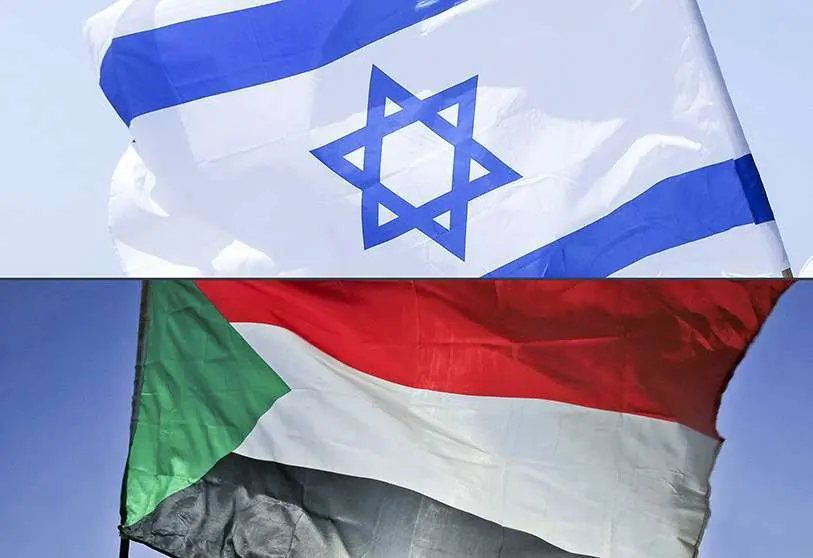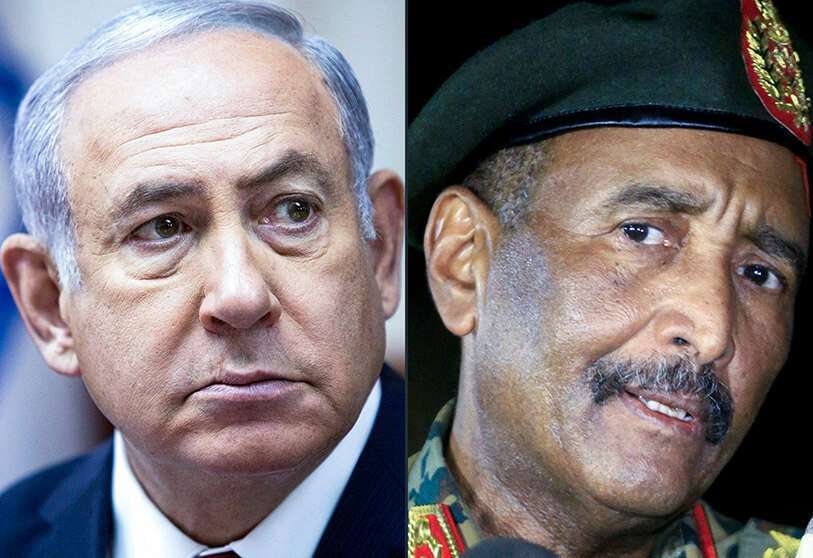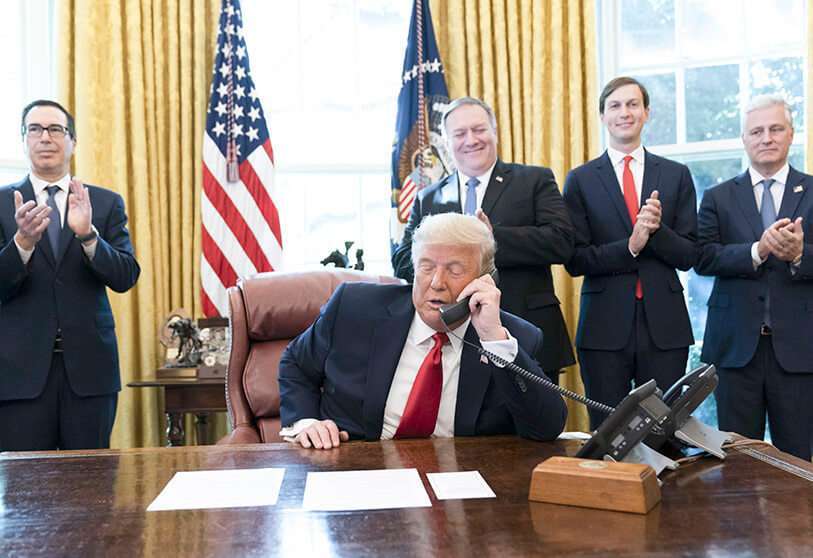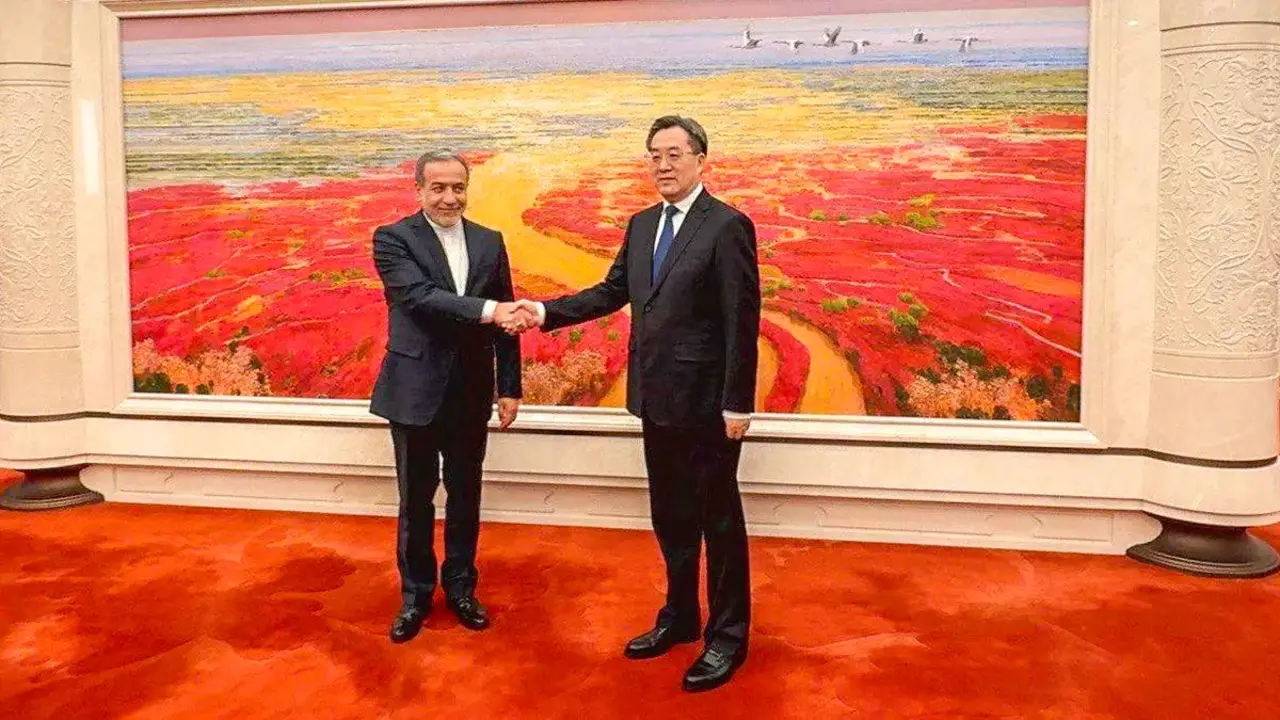Israel sends first delegation to Sudan since agreements

For several days now, rumours have been developing in Jerusalem about the sending of an Israeli delegation to Khartoum following the agreement announced between the two countries on 23rd October by the American President Donald Trump in Washington. According to a senior Israeli official, told AFP, Israel sent Monday, November 23 the first delegation to Sudan since the announcement of the agreement to normalize relations between the two countries.
A few hours later, the Sudanese government said it "has no information" on the arrival of an Israeli delegation in the country or on a possible visit of a Sudanese mission to Israel, told AFP Tuesday, November 24 its spokesman Faisal Mohamed Saleh: "The Sudanese Council of Ministers has no information on the visit of an Israeli delegation to Sudan and not even if it took place," said Saleh, who is also minister of culture and information. "Nor does it have any information about a possible visit by a Sudanese delegation to Israel, as mentioned by the media," including the Sudanese daily Hikayat, added.
Since the announcement of the normalisation of relations between Khartoum and Israel, some Sudanese have supported this decision, which could help the country emerge from the economic crisis, while others criticise the betrayal of the "pan-Arab cause".

The announcement, made on Friday 23 October by US President Donald Trump, followed another important announcement: the withdrawal of Sudan from the "black" list of states that support "terrorism", on which Khartoum has been on since 1993.
It was in the Oval Office, surrounded by Secretary of State Mike Pompeo and Donald Trump's son-in-law and adviser Jared Kushner; at that time Donald Trump declared that the two enemy countries had made "peace".
"We are widening the circle of peace very quickly thanks to your leadership," said Israeli Prime Minister Benjamin Netanyahu. The latter also described this normalisation as a "tremendous change". "Today Khartoum says yes to peace with Israel, yes to recognition of Israel and normalisation with Israel," he said in a statement in Hebrew transmitted by his services to AFP.
The US president was on the phone, over the loudspeaker, with Israeli Prime Minister Benjamin Netanyahu and his Sudanese counterpart Abdallah Hamdok. The latter thanked Donald Trump for his decision to remove his country from the list of countries that support terrorism, saying that the decision would have a major economic impact. "Sudan and Israel have agreed to normalise their relations, in order to put an end to the state of aggression between them," the Sudanese state television reported.
Sudan has been asking to be removed from the list for some time, which means sanctions and barriers to investment for its economy, which is plagued by a lack of foreign currency and an annual inflation rate of over 200 percent. Its demand was accentuated following the fall of Omar al-Bashir in April 2019, under pressure from the streets, and with the emergence of a transitional power.
But most Sudanese blame their leaders for having crossed the red line by betraying the "pan-Arab cause" that has crystallised around the Palestinians since the creation of Israel in 1948, according to sources at Le Figaro.
A survey conducted in October by the Arab Centre for Research and Policy revealed that only 13 percent of Sudanese surveyed approved of establishing relations with Israel and 79 percent opposed it. The announcement of normalization is "contrary to national legislation and pan-Arab commitment," said Sadek al-Mahdi, leader of the Ummah party.

On Monday afternoon, Israeli Army radio announced that a delegation was travelling the same day to Sudan, the third Arab country to announce an official rapprochement this year with the Hebrew state after the United Arab Emirates and Bahrain. A high-ranking Israeli official confirmed to the AFP the visit of this delegation, refusing however to detail the identity of the Israeli personalities expected in Khartoum.
The movement of the delegation, made up of a small group of officials, has been confirmed by army radio. The aim of the trip is to pave the way for an official visit by high-ranking officials in the coming weeks, according to the Yedioth Ahronoth newspaper.
The Israeli prime minister Benjamin Netanyahu, who had met in Uganda at the beginning of the year, the head of the Sudanese Transition Council, General Abdel Fattah al-Burhan, and the head of US diplomacy Mike Pompeo, who took the "first official direct flight" from Tel Aviv to Khartoum on 25 August. Normalisation between Sudan and Israel comes a year after the fall of President Omar al-Bashir's regime and as the transitional authorities in Khartoum draw closer to the United States.
In October Sudan paid $335 million into a special account to compensate the "American victims of terrorism" in connection with the 1998 attacks by al-Qaeda on the US embassies in Kenya and Tanzania, in which over 200 people died. Sudan, which was once a pariah of the international community for harbouring al-Qaeda leader Osama bin Laden in the 1990s, had been condemned to pay such compensation by the US justice system.








